“The folks in line need that stability. They don’t necessarily know where [the food] is coming from or how it got there. They just need to know that they’ll be able to pick up food week after week.” Carter Crain has been working in food rescue for over ten years. What motivates him is precisely that: stability. In his case, stability is going to work everyday knowing that he can help people get food on the table, no matter what life throws at them. “That’s a good way to start the day,” he said.
Carter is the Director of Food Partnerships at The Food Bank of Central and Eastern North Carolina, in Raleigh. This week, Carter worked with The FarmLink Project to receive 40,000 pounds of potatoes from John E. Ferebee Farming, Inc., an eighth-generation family farm in Camden, NC. Last Thursday, The Food Bank and several of our volunteers helped to prepare the potatoes for distribution to 900 agencies, including food pantries, after-school programs, and soup kitchens in rural and urban areas across the state.
The Food Bank of Central and Eastern North Carolina serves 600,000 people in their 34-county service area. Importantly, it ensures deliveries of fresh produce to people in rural areas, who otherwise depend on grocery stores that can struggle to restock shelves in times of crisis like we saw at the beginning of the pandemic. The goal for The Food Bank is for produce to account for about 40% of the food they distribute. Relationships with local North Carolina farmers make that possible. “That happens with community support and great connections with meat producers and farmers in the area,” Carter said. The relationships are essential for Carter, as they help him maintain a regular influx of food donations for families who are facing instability in other areas of life.
Since the pandemic started, 35% more people have depended on The Food Bank’s agency network of food pantries, soup kitchens, etc. to put food on the table. Carter sees the reality of that number in the increased demand for food, especially fresh food. This week, the potatoes from the Ferebee family’s farm helped The Food Bank and its partners provide stability via “a nice American staple,” as he put it, for people in line.
The Food bank and its partners are no strangers to adversity. “We’ve had a hurricane in two of the last four years,” with hurricane Florence in 2018 and hurricane Matthew in 2016. “This fiscal year we were still supporting agencies who didn’t have people in their own homes since Florence,” Carter added. Some were still living in hotels and other alternative housing while homes are rebuilt. Because of these past experiences, Carter said, the network has been good at adapting to meet the needs of its communities.
Carter and his team are there to do the work, no matter the circumstances. Carter said what inspires him is, “meeting a really basic human need that nobody should have to struggle with. [Putting food on the table] is an added stress that people don’t need to deal with when they’re already going through some of the most difficult periods in their lives.” Put that way, it’s simple: inspiration stems from the sheer knowledge that he can do something to make others’ lives better. At the end of the day, stability manifests through relationships within the community; The Food Bank helps to maintain a flow of produce from farms to people in need (and a regular income to the farmers), and in turn, the relationships energize Carter at the start of every day.
< Back
“The folks in line need that stability. They don’t necessarily know where [the food] is coming from or how it got there. They just need to know that they’ll be able to pick up food week after week.” Carter Crain has been working in food rescue for over ten years. What motivates him is precisely that: stability. In his case, stability is going to work everyday knowing that he can help people get food on the table, no matter what life throws at them. “That’s a good way to start the day,” he said.
Carter is the Director of Food Partnerships at The Food Bank of Central and Eastern North Carolina, in Raleigh. This week, Carter worked with The FarmLink Project to receive 40,000 pounds of potatoes from John E. Ferebee Farming, Inc., an eighth-generation family farm in Camden, NC. Last Thursday, The Food Bank and several of our volunteers helped to prepare the potatoes for distribution to 900 agencies, including food pantries, after-school programs, and soup kitchens in rural and urban areas across the state.
The Food Bank of Central and Eastern North Carolina serves 600,000 people in their 34-county service area. Importantly, it ensures deliveries of fresh produce to people in rural areas, who otherwise depend on grocery stores that can struggle to restock shelves in times of crisis like we saw at the beginning of the pandemic. The goal for The Food Bank is for produce to account for about 40% of the food they distribute. Relationships with local North Carolina farmers make that possible. “That happens with community support and great connections with meat producers and farmers in the area,” Carter said. The relationships are essential for Carter, as they help him maintain a regular influx of food donations for families who are facing instability in other areas of life.
Since the pandemic started, 35% more people have depended on The Food Bank’s agency network of food pantries, soup kitchens, etc. to put food on the table. Carter sees the reality of that number in the increased demand for food, especially fresh food. This week, the potatoes from the Ferebee family’s farm helped The Food Bank and its partners provide stability via “a nice American staple,” as he put it, for people in line.
The Food bank and its partners are no strangers to adversity. “We’ve had a hurricane in two of the last four years,” with hurricane Florence in 2018 and hurricane Matthew in 2016. “This fiscal year we were still supporting agencies who didn’t have people in their own homes since Florence,” Carter added. Some were still living in hotels and other alternative housing while homes are rebuilt. Because of these past experiences, Carter said, the network has been good at adapting to meet the needs of its communities.
Carter and his team are there to do the work, no matter the circumstances. Carter said what inspires him is, “meeting a really basic human need that nobody should have to struggle with. [Putting food on the table] is an added stress that people don’t need to deal with when they’re already going through some of the most difficult periods in their lives.” Put that way, it’s simple: inspiration stems from the sheer knowledge that he can do something to make others’ lives better. At the end of the day, stability manifests through relationships within the community; The Food Bank helps to maintain a flow of produce from farms to people in need (and a regular income to the farmers), and in turn, the relationships energize Carter at the start of every day.
Carter Crain
Director of Food Partnerships, The Food Bank of Central and Eastern NC
“The folks in line need that stability. They don’t necessarily know where [the food] is coming from or how it got there. They just need to know that they’ll be able to pick up food week after week.” Carter Crain has been working in food rescue for over ten years. What motivates him is precisely that: stability. In his case, stability is going to work everyday knowing that he can help people get food on the table, no matter what life throws at them. “That’s a good way to start the day,” he said.
Carter is the Director of Food Partnerships at The Food Bank of Central and Eastern North Carolina, in Raleigh. This week, Carter worked with The FarmLink Project to receive 40,000 pounds of potatoes from John E. Ferebee Farming, Inc., an eighth-generation family farm in Camden, NC. Last Thursday, The Food Bank and several of our volunteers helped to prepare the potatoes for distribution to 900 agencies, including food pantries, after-school programs, and soup kitchens in rural and urban areas across the state.
The Food Bank of Central and Eastern North Carolina serves 600,000 people in their 34-county service area. Importantly, it ensures deliveries of fresh produce to people in rural areas, who otherwise depend on grocery stores that can struggle to restock shelves in times of crisis like we saw at the beginning of the pandemic. The goal for The Food Bank is for produce to account for about 40% of the food they distribute. Relationships with local North Carolina farmers make that possible. “That happens with community support and great connections with meat producers and farmers in the area,” Carter said. The relationships are essential for Carter, as they help him maintain a regular influx of food donations for families who are facing instability in other areas of life.
Since the pandemic started, 35% more people have depended on The Food Bank’s agency network of food pantries, soup kitchens, etc. to put food on the table. Carter sees the reality of that number in the increased demand for food, especially fresh food. This week, the potatoes from the Ferebee family’s farm helped The Food Bank and its partners provide stability via “a nice American staple,” as he put it, for people in line.
The Food bank and its partners are no strangers to adversity. “We’ve had a hurricane in two of the last four years,” with hurricane Florence in 2018 and hurricane Matthew in 2016. “This fiscal year we were still supporting agencies who didn’t have people in their own homes since Florence,” Carter added. Some were still living in hotels and other alternative housing while homes are rebuilt. Because of these past experiences, Carter said, the network has been good at adapting to meet the needs of its communities.
Carter and his team are there to do the work, no matter the circumstances. Carter said what inspires him is, “meeting a really basic human need that nobody should have to struggle with. [Putting food on the table] is an added stress that people don’t need to deal with when they’re already going through some of the most difficult periods in their lives.” Put that way, it’s simple: inspiration stems from the sheer knowledge that he can do something to make others’ lives better. At the end of the day, stability manifests through relationships within the community; The Food Bank helps to maintain a flow of produce from farms to people in need (and a regular income to the farmers), and in turn, the relationships energize Carter at the start of every day.
.png)

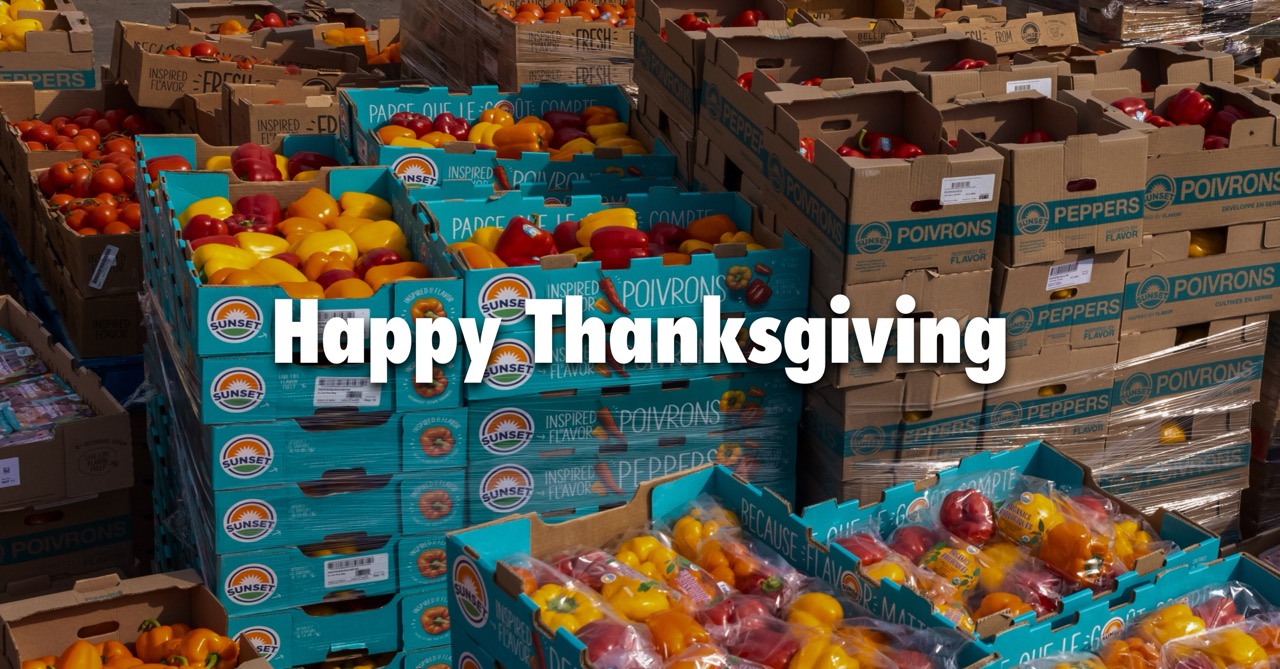
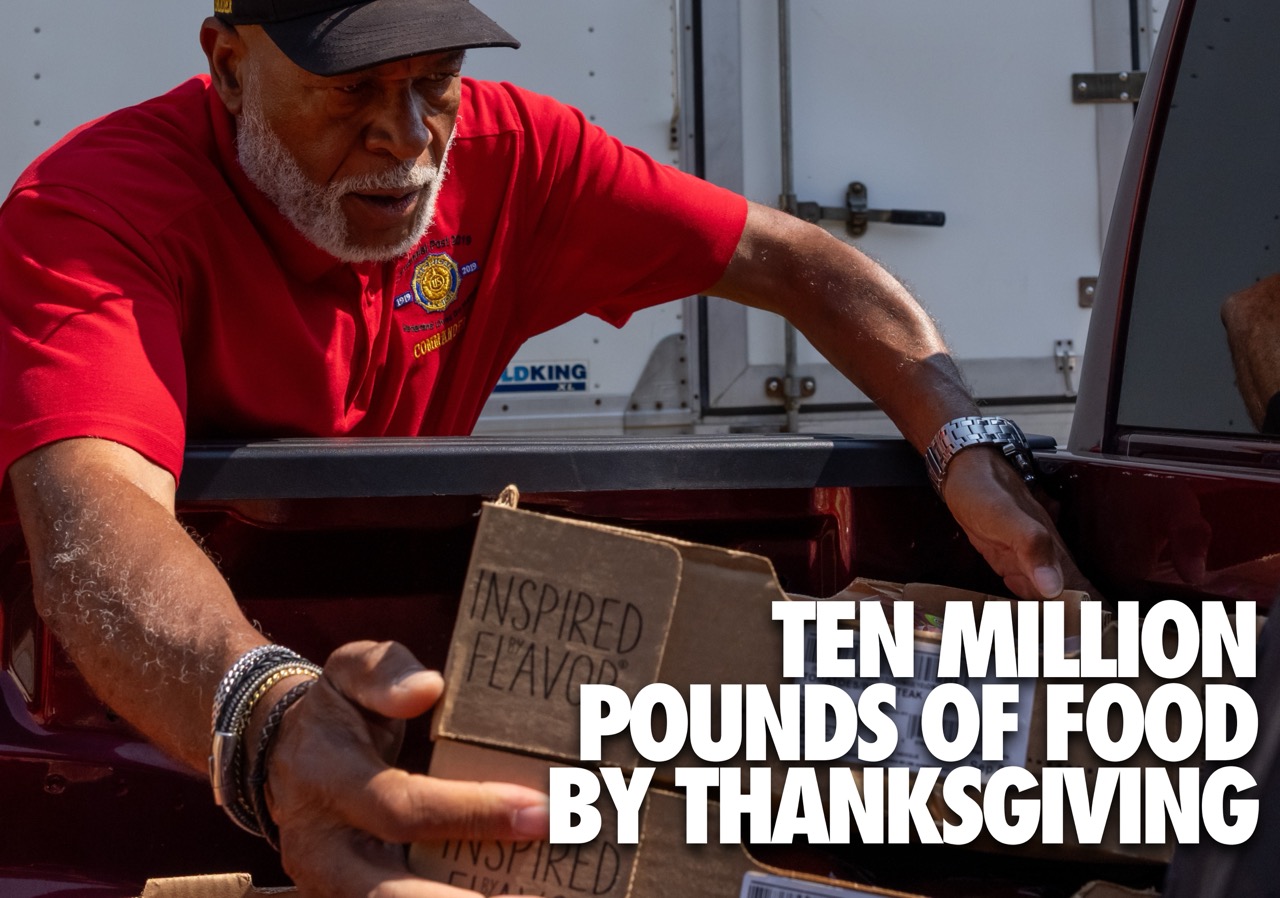
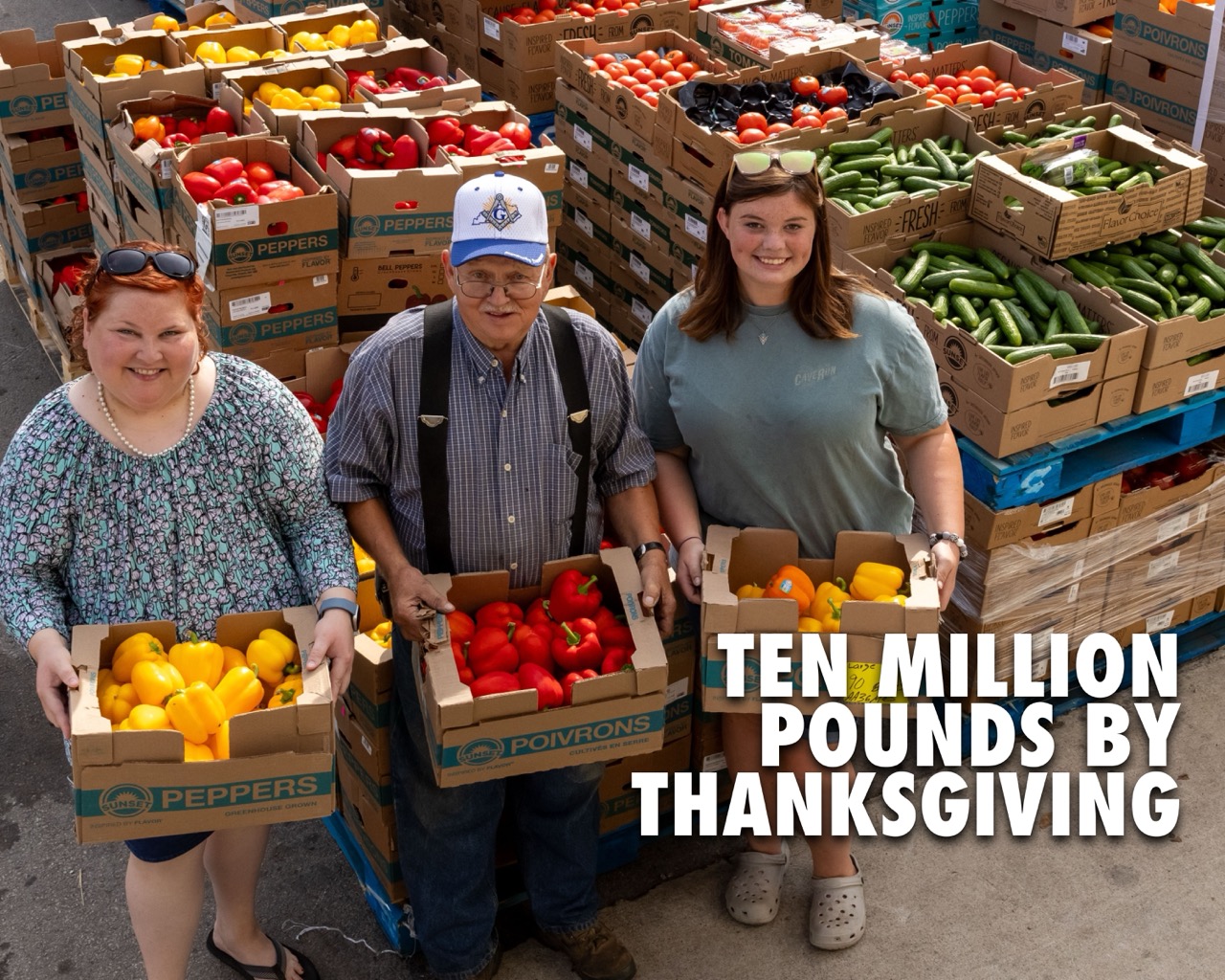
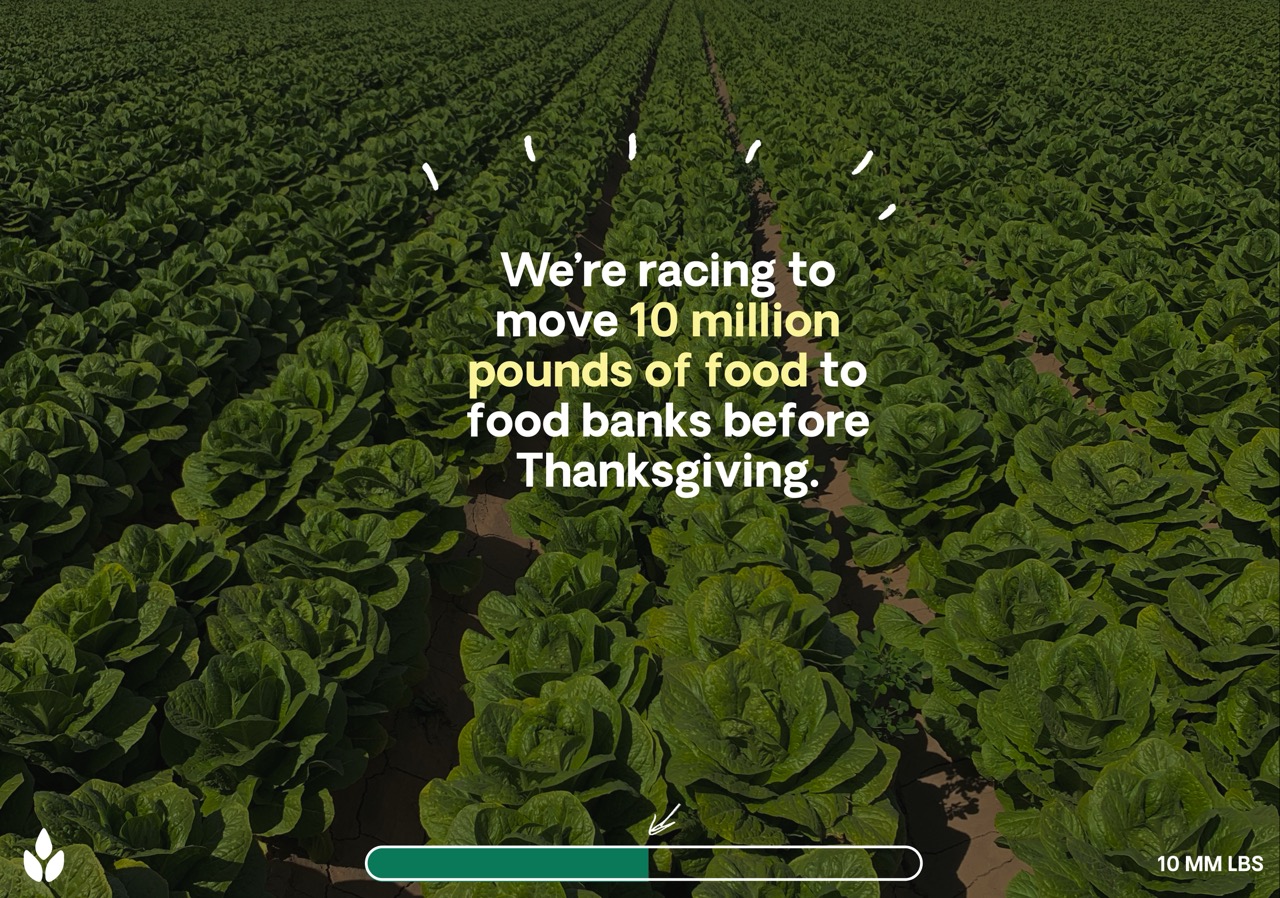
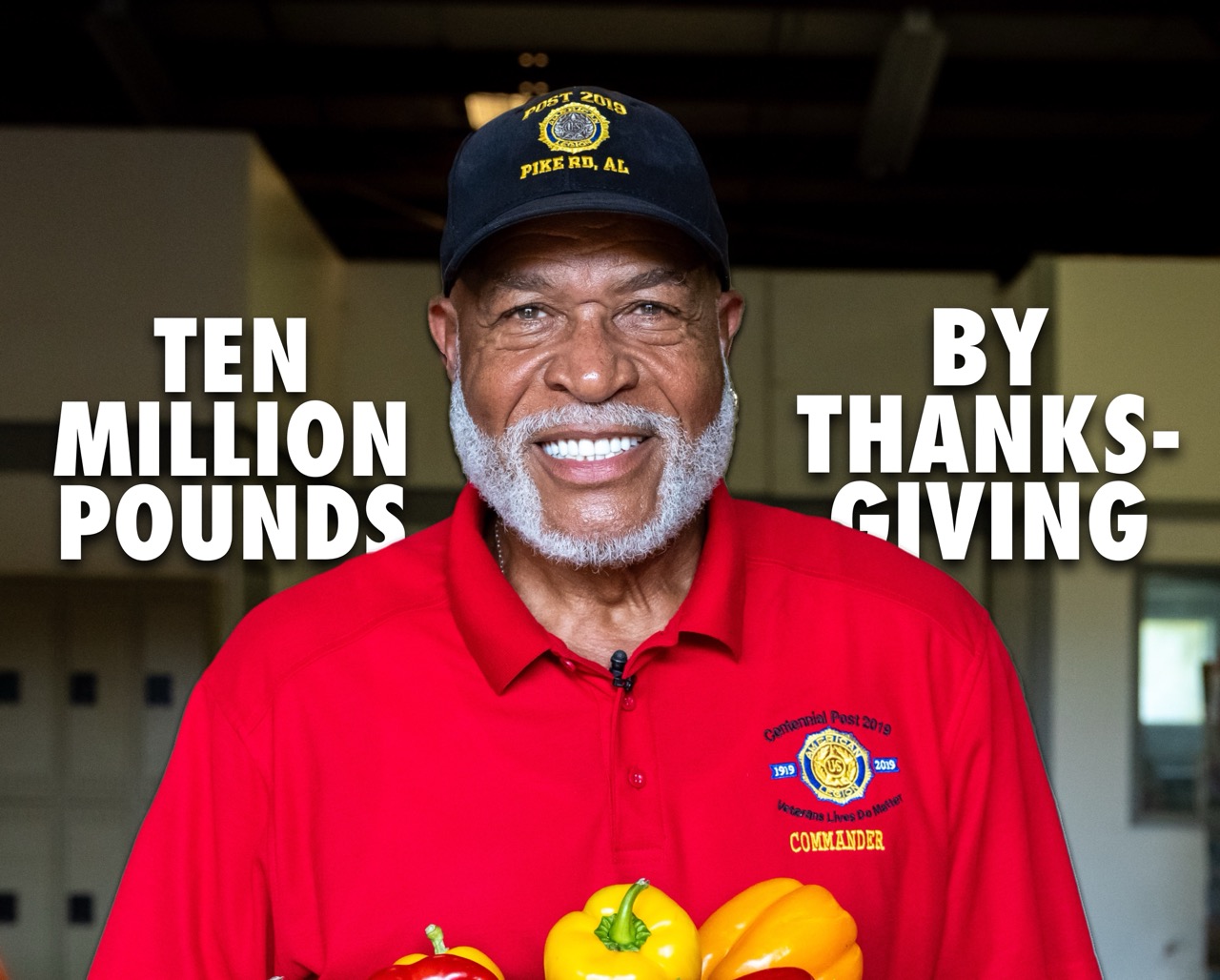
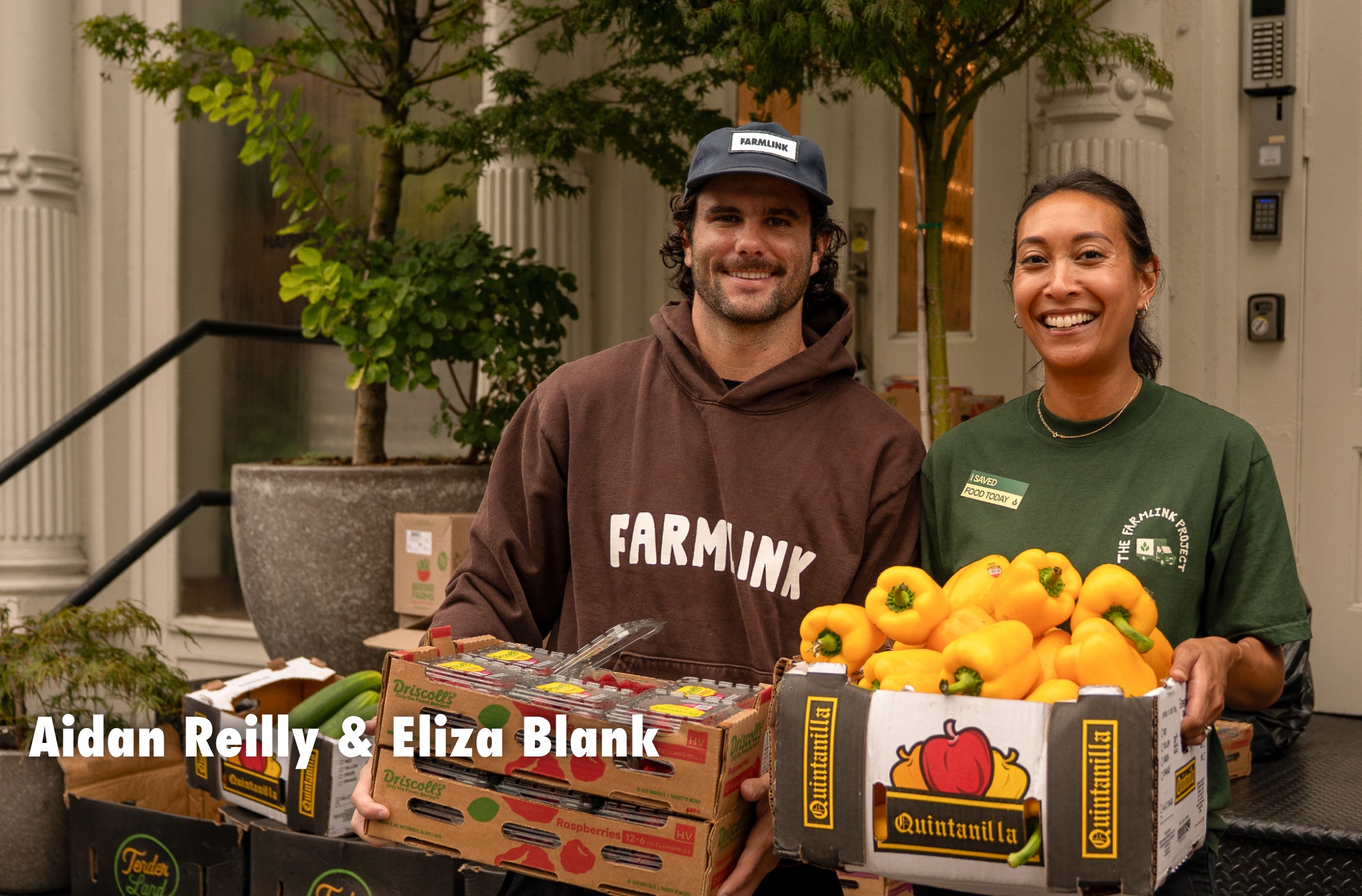
.svg)
.svg)
.svg)